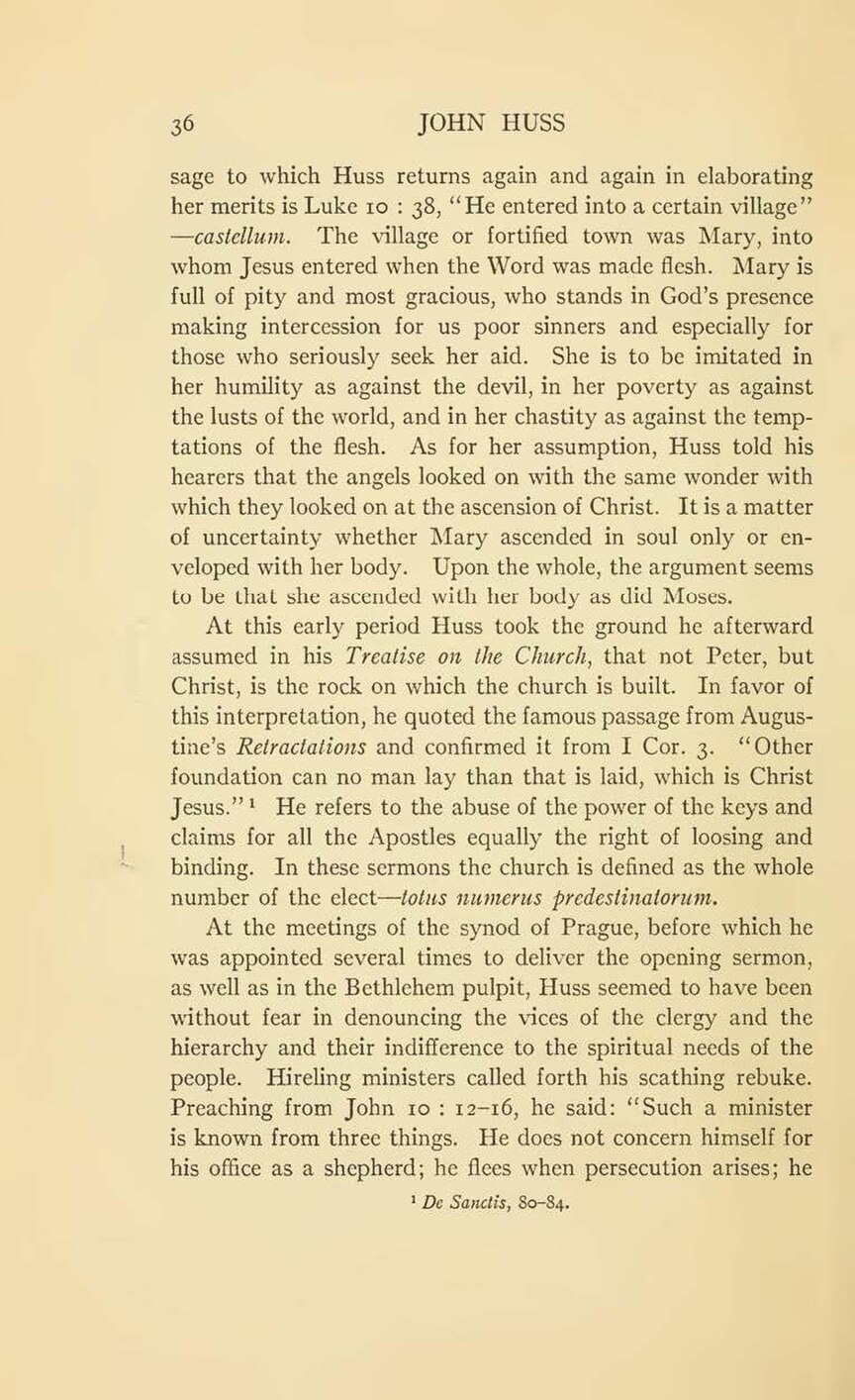sage to which Huss returns again and again in elaborating her merits is Luke 10: 38, “He entered into a certain village”—castellum. The village or fortified town was Mary, into whom Jesus entered when the Word was made flesh. Mary is full of pity and most gracious, who stands in God’s presence making intercession for us poor sinners and especially for those who seriously seek her aid. She is to be imitated in her humility as against the devil, in her poverty as against the lusts of the world, and in her chastity as against the temptations of the flesh. As for her assumption, Huss told his hearers that the angels looked on with the same wonder with which they looked on at the ascension of Christ. It is a matter of uncertainty whether Mary ascended in soul only or enveloped with her body. Upon the whole, the argument seems to be that she ascended with her body as did Moses.
At this early period Huss took the ground he afterward assumed in his Treatise on the Church, that not Peter, but Christ, is the rock on which the church is built. In favor of this interpretation, he quoted the famous passage from Augustine’s Retractations and confirmed it from I Cor. 3. “Other foundation can no man lay than that is laid, which is Christ Jesus.”[1] He refers to the abuse of the power of the keys and claims for all the Apostles equally the right of loosing and binding. In these sermons the church is defined as the whole number of the elect—totus numerus predestinatorum.
At the meetings of the synod of Prague, before which he was appointed several times to deliver the opening sermon, as well as in the Bethlehem pulpit, Huss seemed to have been without fear in denouncing the vices of the clergy and the hierarchy and their indifference to the spiritual needs of the people. Hireling ministers called forth his scathing rebuke. Preaching from John 10: 12–16, he said: “Such a minister is known from three things. He does not concern himself for his office as a shepherd; he flees when persecution arises; he
- ↑ De Sanctis 80–84.
